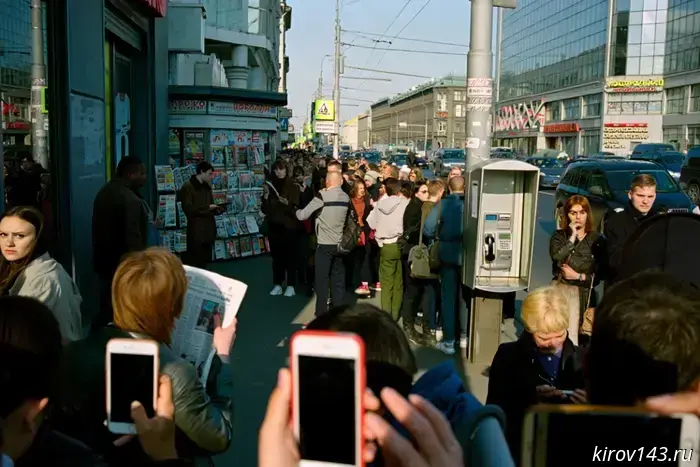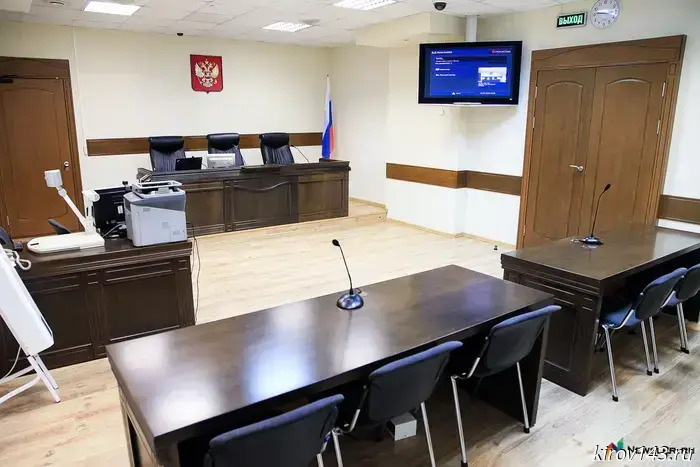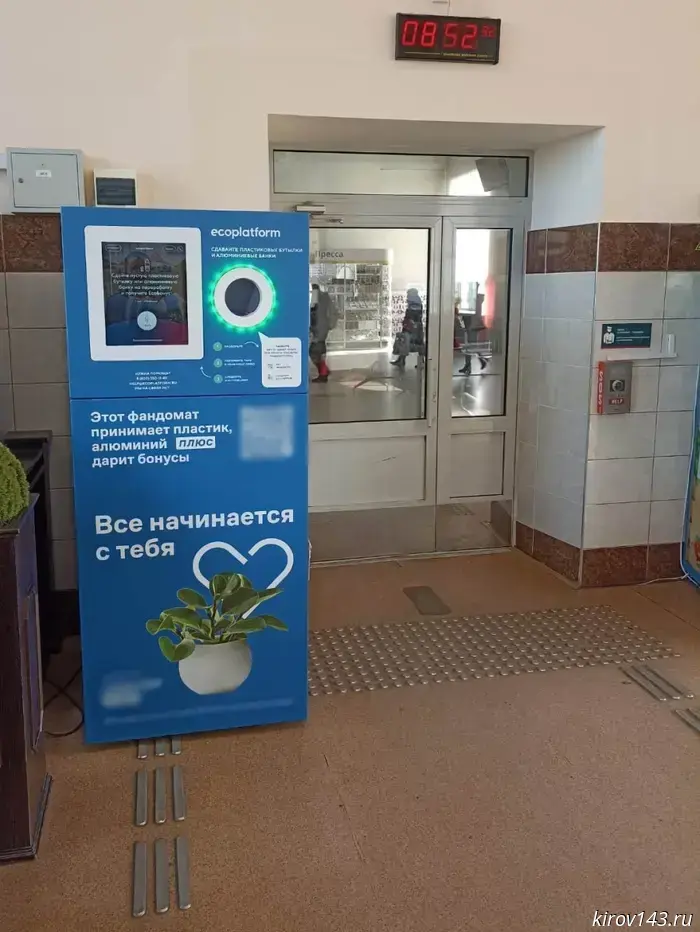
Kirov has rolled back to 2007: how to live in a "nothing loads" mode
A couple of months ago residents of Kirov experienced mobile internet outages. In several districts of Kirov mobile internet disappeared periodically, and in some, especially where factories and other strategic facilities are located, mobile internet has been consistently absent for a long time.
City and regional authorities explained the absence of mobile internet as "ensuring the safety of Kirov residents." In particular, head of the city administration Vyacheslav Simakov reported that the shutdowns occur to ensure safety due to possible UAV attacks. The city manager noted that "the issue of reconfiguring equipment is being worked out so that it will be possible to use mobile communication, SMS messages and other means of communication." Simakov said that this is a "temporary measure aimed at ensuring the safety of the residents of our city."
Unavailability of the familiar
Mobile internet has firmly entered the lives of almost every resident of Kirov. With it you can at any moment and anywhere go online to find necessary information, get an answer to a question, communicate with friends and relatives, listen to music, use banking apps to transfer money to children, parents, friends or to yourself—onto a card of another bank—order a taxi, or simply "kill time" while waiting by scrolling a news feed or social media.
You can pay for purchases, find the location of needed places and use maps to get to the right address. Mobile internet is also necessary to receive orders at collection points where goods are issued by a QR or barcode in a marketplace app account.
With periodic or complete mobile internet outages, all these familiar and convenient things became unavailable.
Because of the mobile internet outages, Kirov residents began to massively contact providers to get fixed-line internet. As a result, the time frames for providing this service shifted from a couple or three days to two or more weeks. We called the operators that provide fixed-line internet installation services in Kirov to find out how long residents who have lost, or periodically lose, mobile internet can expect to gain access to the net. It turned out that connection times have increased significantly due to the mobile internet disruptions. Thus, two out of three popular operators promised that a technician would come only after two weeks; the third promised a technician visit and installation of fixed-line internet within three days. Nevertheless, consultants warned that one should not take too long to choose, because the "available slots" are taken very quickly.
What to do when "nothing loads"
To avoid being unable to pay for a product or service, Kirov residents are advised to carry cash, and to have a small reserve over the amount they plan to spend when leaving home.
To order a taxi, if the trip is planned from home and you have fixed-line internet, you can order a car from your apartment—within the range of your router.
But bear in mind that a taxi ordered via an app may not arrive at the correct address or may be delayed on the way. Some drivers say that due to mobile internet disruptions they had problems with payment for an order. Others have tried to outsmart the system by selecting 2G in their phone settings.
However, every cloud has a silver lining: with the absence of mobile internet many Kirov residents began using the good old local services—ordering a taxi by phone.
You can pick up orders from marketplace pickup points or pharmacies by taking a screenshot of the QR or barcode on your smartphone in advance. And you can replace online maps with the 2GIS app, which works even without mobile internet if you download it to your smartphone. Music lovers are advised to download favorite tracks to their phones so they can access music regardless of mobile internet availability.
Scrolling news feeds and social media is harder. In this case one will have to learn other ways to pass the time while waiting or to fight boredom. And while older people who did not grow up in an almost round-the-clock online presence and envision their life without the internet and constant messaging will cope easily with offline mode, for teenagers and young people being "disconnected" from the World Wide Web can cause anxiety and even depression. For generations who learned to use gadgets before they learned to speak, it is hard to imagine that one can pass the time without staring at mobile devices, for example, in the cozy old-fashioned "granddad" style—by reading a book.
Psychologists spoke about how to endure "internet solitude" when not in a constant information stream.
Lack of internet access deprives one of the illusion of control
Clinical psychologist and neuropsychologist at the "Sovermed" Medical Center, Yana Turkovskaya, explained why lack of internet access causes anxiety and what to do to regain mental balance and stop being dependent on news feeds and social networks.
- As a psychologist, I suggest analyzing what exactly happens to our emotional state at such moments, and offering strategies that will help not only to survive this period, but perhaps even benefit from it.
The reaction to the loss of connection is not a whim, but a quite explainable response of our psyche. The habitual becomes unfeasible. Moreover, we are dealing with rituals—established behavioral habits. Scrolling feeds and constant checking and exchanging messages are very strong behavioral rituals. They give us a sense of being busy, a connection to the outside world, and quick dopamine hits (the pleasure hormone). The sudden disappearance of this source causes a "withdrawal syndrome": boredom, anxiety, irritability.
In psychology there is a known fear that manifests in modern society. It is the fear of missing out, of missing a benefit. Our psyche is arranged so that we are afraid of missing something significant: a news item, a message in a chat, a friend's joke. This fear triggers mechanisms of anxiety. When the internet is turned off, the state is intensified to the limit, even if objectively nothing critical is happening. A need is left unsatisfied. A sense of loss of control is created and, as a consequence, uncertainty. Lack of access to information deprives us of the feeling of control over the situation. At the same time, psychology considers that this sense of control is actually an "illusion" of the psyche. A person may think that at this moment they are missing something important, do not know what is happening around them, cannot inform loved ones about their condition or learn about theirs. Thus, uncertainty is one of the conditions for the emergence of anxiety.
In addition to all of the above, social ties are disrupted. For many of us, especially young people, social networks are the main (and sometimes the only) way to maintain relationships. Therefore a sudden, abrupt reduction in communication is perceived by us as social isolation, which can even provoke feelings of loneliness and longing in some highly sensitive people.
What should be done so that this situation is not a negative stress? Use it as an opportunity to restructure and reassess your habits. Even a forced break in online communication can have positive sides if viewed correctly.
What flexible and adaptive attitudes toward the situation can lead to:
- We can give our nervous system a rest. With a competent approach and mindset, anxiety may decrease (but only after an adaptation period). The endless flow of news, often negative, and comparing yourself to the "successful" images of other people is a huge source of stress.
- This time can be used to deepen "real" relationships. Move communication to in-person meetings. This is beneficial: in face-to-face conversation we hear voices, intonations, see emotions. Such communication is higher quality, deeper and more rewarding.
- Use this period to "return to yourself." Without the ability to go online, time that previously went to scrolling suddenly frees up. This is a chance to remember your hobbies, read a book, simply be alone with your thoughts, listen to yourself without external noise.
- And, of course, increase productivity. The main source of procrastination disappears. Often in such periods people start doing what they have long postponed.
What to do to help yourself cope with the situation if the stress has begun to negatively affect your well-being and mood?
The main thing is not to fight the situation, but to adapt to it—turn the forced limitations into a resource, show flexibility, reframe your thinking and habits.
It is important to acknowledge your feelings, not to ignore anxiety and irritation if they arise. You can say them out loud to yourself or write them down in a journal/notes: "Yes, I am anxious right now because I cannot be connected to the outside world."
Try to restore control where possible. For example:
- create a new ritual to replace morning/evening scrolling—10 minutes of exercise, reading a few pages of a book;
- make a plan for the day in advance. Structuring time helps reduce anxiety from uncertainty. Include work, household chores, rest and any unforeseen tasks;
- agree with family and friends on what time you will go online.
Mindfulness is our helper. Try to use the freed time mindfully. As mentioned above, return to a forgotten hobby: drawing, playing the guitar; rewatch a film you have long loved; do some cleaning or sort out your things; take a walk without your phone, paying attention to the world around you. Practice a digital detox consciously. You can use this experience as an "experiment." It often happens that after the connection returns we deliberately limit our time on social networks.
An unexpected, sudden internet outage is a test for our psyche. Try to use it as a unique opportunity to reboot your habits, remember the world beyond the internet space and learn something new about yourself and those around you. Instead of panicking, you can try to perceive the situation as an involuntary pause.
Другие Новости Кирова (НЗК)
 In Kirov Oblast, the average mortgage loan decreased by 8% over the month.
The average mortgage loan in Russia rose by almost 17% year-on-year and reached 4.36 million rubles, but in the Kirov region the figure fell by 8% in July—to 3.31 million rubles.
In Kirov Oblast, the average mortgage loan decreased by 8% over the month.
The average mortgage loan in Russia rose by almost 17% year-on-year and reached 4.36 million rubles, but in the Kirov region the figure fell by 8% in July—to 3.31 million rubles.
 The police are looking for the thieves of the satchel.
Two residents of Kirov are suspected of stealing a briefcase.
The police are looking for the thieves of the satchel.
Two residents of Kirov are suspected of stealing a briefcase.
 The court partially granted the claim by an individual entrepreneur against the Kirov-based company "Umny Vending".
The arbitration court recovered from the defendant only 50,000 rubles instead of 433.
The court partially granted the claim by an individual entrepreneur against the Kirov-based company "Umny Vending".
The arbitration court recovered from the defendant only 50,000 rubles instead of 433.
 In Kirov Oblast, lightning struck a residential house.
A woman from Uney called the firefighters in time.
In Kirov Oblast, lightning struck a residential house.
A woman from Uney called the firefighters in time.
 In six months, Kirov residents spent more than a billion rubles on jewelry.
In the first half of 2025, Kirov residents purchased jewelry worth more than 1 billion rubles, which is 25% more than a year earlier.
In six months, Kirov residents spent more than a billion rubles on jewelry.
In the first half of 2025, Kirov residents purchased jewelry worth more than 1 billion rubles, which is 25% more than a year earlier.
 Nearly 8 tons of plastic and aluminum were collected at the stations of the Gorky Railway.
From January to July 2025, visitors to the stations of the Gorky Railway deposited about 200,000 plastic bottles and 41,000 aluminum cans in reverse vending machines. The total weight of the recyclables amounted to nearly 8 tonnes.
Nearly 8 tons of plastic and aluminum were collected at the stations of the Gorky Railway.
From January to July 2025, visitors to the stations of the Gorky Railway deposited about 200,000 plastic bottles and 41,000 aluminum cans in reverse vending machines. The total weight of the recyclables amounted to nearly 8 tonnes.
Kirov has rolled back to 2007: how to live in a "nothing loads" mode
Just over 10 years ago, the nostalgic phrase "Give me back my 2007" went viral on Runet. The "cry", apparently, has only now reached its "addressee". Unfortunately, it's not about 2007 prices or the average price of gasoline — 19 rubles per liter — or the average annual dollar exchange rate — 30 rubles per US dollar. The return to 2007 concerns mobile internet, which first appeared at the end of that year.
